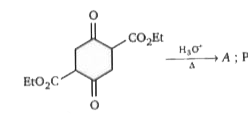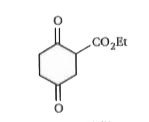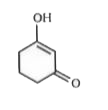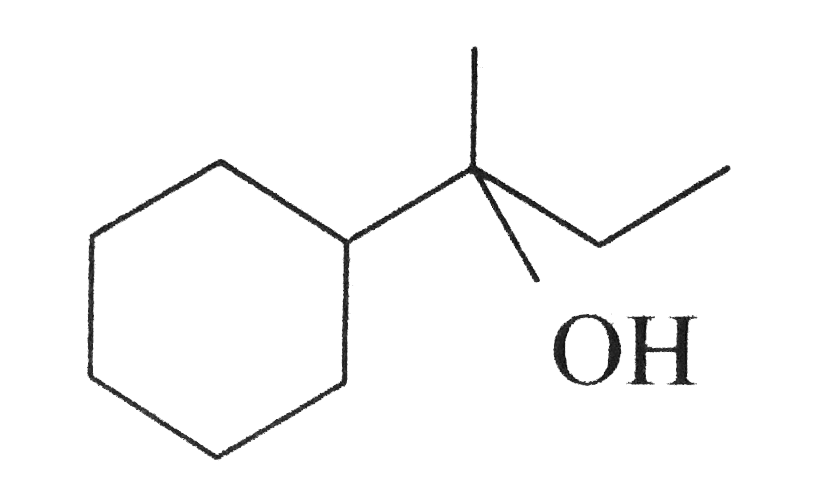Propene is not the product obtained by dehydration of :
2-Propanol
1-propanol
Propanal
n-propyl alcohol
The correct Answer is:A
To solve the question, "Propene is not the product obtained by dehydration of:", we need to analyze each option provided and determine whether propene is formed through dehydration of the given alcohols.
1. Understand Dehydration of Alcohols: Dehydration of alcohols typically involves the removal of water (H2O) to form alkenes. This reaction usually requires an acid catalyst, such as concentrated sulfuric acid or phosphoric acid.
2. Analyze Each Option:
- Option 1: 2-Propanol:
- When 2-propanol (isopropyl alcohol) undergoes dehydration, it forms propene (C3H6) as follows:
2-PropanolH2SO4−−−−→Propene+H2O
- Product: Propene is formed.
- Option 2: 1-Propanol:
- 1-Propanol (also known as n-propyl alcohol) also undergoes dehydration to yield propene:
1-PropanolH2SO4−−−−→Propene+H2O
- Product: Propene is formed.
- Option 3: Propanal:
- Propanal is an aldehyde, not an alcohol. Aldehydes do not undergo dehydration like alcohols do. Instead, they can undergo different reactions, but dehydration to form an alkene is not one of them.
- Product: No propene is formed.
- Option 4: n-Propyl Alcohol:
- n-Propyl alcohol is the same as 1-propanol. Therefore, it will also lead to the formation of propene upon dehydration:
n-Propyl AlcoholH2SO4−−−−→Propene+H2O
- Product: Propene is formed.
3. Conclusion: The only compound from which propene is not obtained upon dehydration is Option 3: Propanal.
Final Answer:
Propene is not the product obtained by dehydration of: Option 3 - Propanal.
- Option 1: 2-Propanol:
- When 2-propanol (isopropyl alcohol) undergoes dehydration, it forms propene (C3H6) as follows:
2-PropanolH2SO4−−−−→Propene+H2O
- Product: Propene is formed.
- 1-Propanol (also known as n-propyl alcohol) also undergoes dehydration to yield propene:
1-PropanolH2SO4−−−−→Propene+H2O
- Product: Propene is formed.
- Propanal is an aldehyde, not an alcohol. Aldehydes do not undergo dehydration like alcohols do. Instead, they can undergo different reactions, but dehydration to form an alkene is not one of them.
- Product: No propene is formed.
- n-Propyl alcohol is the same as 1-propanol. Therefore, it will also lead to the formation of propene upon dehydration:
n-Propyl AlcoholH2SO4−−−−→Propene+H2O
- Product: Propene is formed.
Propene is not the product obtained by dehydration of: Option 3 - Propanal.
Topper's Solved these Questions
- ALCOHOLS, PHENOLS & ETHERS BOOK - VMC MODULES ENGLISHCHAPTER - ALCOHOLS, PHENOLS & ETHERS EXERCISE - IN-CHAPTER EXERCISE - G
10 Videos
- ALCOHOLS, PHENOLS & ETHERS BOOK - VMC MODULES ENGLISHCHAPTER - ALCOHOLS, PHENOLS & ETHERS EXERCISE - IN-CHAPTER EXERCISE - H
10 Videos
- ALCOHOLS, PHENOLS & ETHERS BOOK - VMC MODULES ENGLISHCHAPTER - ALCOHOLS, PHENOLS & ETHERS EXERCISE - IN-CHAPTER EXERCISE - E
10 Videos
- 13-14 HYDROGEN & S-BLOCK ELEMENTBOOK - VMC MODULES ENGLISHCHAPTER - 13-14 HYDROGEN & S-BLOCK ELEMENTEXERCISE - JEE Advanced Archive
48 Videos
- ALCOHOLS, PHENOLS & ETHERSBOOK - VMC MODULES ENGLISHCHAPTER - ALCOHOLS, PHENOLS & ETHERSEXERCISE - Impeccable
100 Videos
Similar Questions
Knowledge Check
 , Product obtained is :A
, Product obtained is :A B
B C
C DNone of these
DNone of these , Product obtained in the reaction is :ADiastereomerBRacemicCMesoDOptically pure enantiomer
, Product obtained in the reaction is :ADiastereomerBRacemicCMesoDOptically pure enantiomer H3PO4−−−→Δ Major product obtained by dehydration of given alcohol is : A
H3PO4−−−→Δ Major product obtained by dehydration of given alcohol is : A B
B C
C D
D
State one appropriate observation for the following:
When the gaseous product obtained by dehydration of ethyl alcohol is passed through bromine water.
View SolutionState one relevant observation for the following:
When the gaseous product obtained by dehydration of ethyl alcohol is passed through bromine water.
View SolutionThe products obtained in the reaction

View Solution
The product obtained is/are
View Solution , Products obtained are :
, Products obtained are :
View Solution


